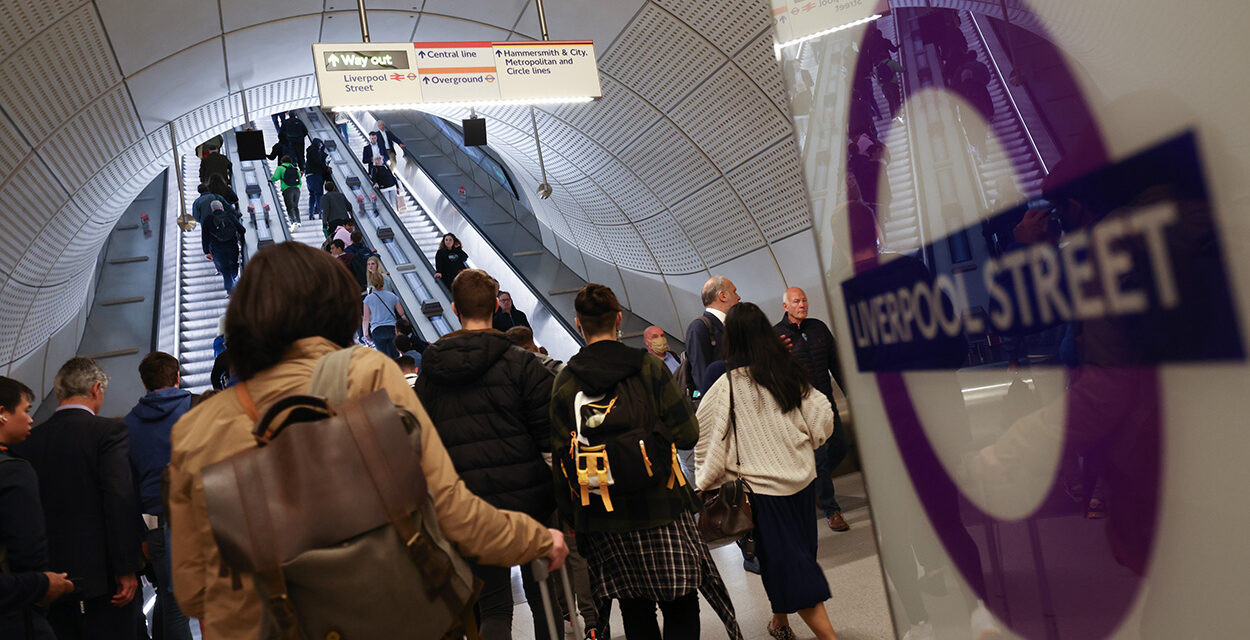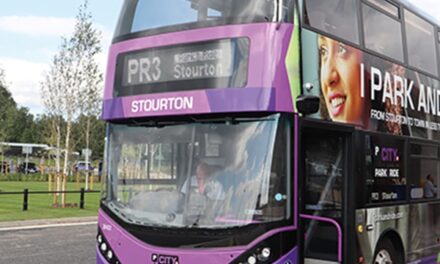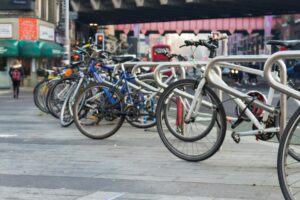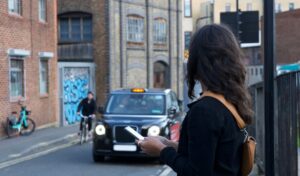Two years on from the official opening of the transformational Elizabeth line, Transport for London (TfL) can reveal the positive impact the line has had on travel and the economy in London and the surrounding areas. The Elizabeth line is the fastest growing railway in the UK with more than 350 million journeys being made on the line since opening in May 2022, significantly helping to drive recovery from the pandemic by creating new journey opportunities, supporting regeneration across the capital, and increasing housing and social opportunities, while adding an estimated £42bn to the UK economy.
During its first full year of operation, the Elizabeth line saw more than 150 million passenger journeys. In 2023/24, there were 210 million journeys made on the Elizabeth line, a dramatic increase. Passenger demand is already above the post-pandemic expectations for the end of the decade and is expected to increase further.
On average, there are around 700,000 passenger journeys on the line every weekday, with the busiest day recorded on 18 April 2024 when there were 787,000 journeys across the line. The busiest station is Tottenham Court Road, followed by Liverpool Street.
Forecasts for the 2024/25 financial year paint a positive picture for Elizabeth line growth, with journeys expected to rise to 226 million for the year, a further increase of eight per cent from 2023/24. To date, the highest demand growth on the line has been between Reading and Hayes & Harlington, which has seen an 80 per cent increase in demand on TfL services, while demand to Heathrow terminals has increased by 64 per cent, since through-running services were introduced in November 2022.
Advertisement
The railway has also helped to drive regeneration along the length of the route. It has had a direct impact on the development and delivery of 55,000 new homes, with further potential to deliver 15,000 new homes and 8,000 jobs. Abbey Wood is one of the largest regeneration areas in London. To date, it has seen a six per cent increase in new homes, with the expectation to see further development over the next five years. In West London, the highest growth rates are in Southall and Hayes & Harlington, the latter has also seen an increase in social housing developments being built. 60 per cent of employment growth within greater London, during the Elizabeth line build between 2015 and 2022, has been within 1km of an Elizabeth line station.
The Mayor of London, Sadiq Khan, said: “The Elizabeth line has been a game-changer for our city, transforming travel across London and the South East and delivering a £42bn boost to the UK economy. In just two years, more than 350 million journeys have been made and the line has directly impacted the development of 55,000 new homes and significantly supported employment growth.
“The Elizabeth line has played a vital role in our recovery from the pandemic and is helping to build a fairer, greener and more prosperous London for everyone.”
Howard Smith, TfL’s Director of the Elizabeth line, said: “The Elizabeth line has rightly and quickly become one of the most popular railways in the country. It has also been one of the most reliable, and earlier this year we achieved our best quarterly performance so far. The Elizabeth line continues to be transformational for people travelling across London and the South East. The huge numbers of customers using our accessible trains and stations is a real testament to the importance of the railway investment and to all those involved in keeping it running.”
John Lewis, Peabody’s Executive Director for Thamesmead, said: ”The Elizabeth line has made a huge difference to thousands of people, as well as the growing number of businesses and services in South Thamesmead. It shows that high quality transport links are one of the foundations of a successful place, bringing about significant local social and economic benefits. Improving connectivity across the whole of Thamesmead is a key part of our long-term plan to improve, grow and look after the town. It’s why we’re continuing to support TfL and other stakeholders with proposals to bring the DLR to the north of Thamesmead. Supported by the right transport infrastructure, this part of Thamesmead has the potential to deliver up to 15,000 new homes, thousands of jobs and an improved expanded town centre.”
Marcel Baettig, Chief Executive Officer at Bow Arts Clubs, said: “Since the opening of the Elizabeth line our artists have been able to feel properly connected to their clients, to opportunities and to networks and friends and Abbey Wood has become a more exciting place to be.
“In 2019 Bow Arts moved to Abbey Wood and renovated the iconic Lakeside Center, the plan was for it to be London’s next creative hub, supporting young artists, designers and makers helping them establish their careers and contribute to London as a World Capital of Culture. For this to work the place had to be interesting, affordable and above all connected. Without this vital third piece of the puzzle the artists businesses simply would not survive, and the Elizabeth line was that final piece of the puzzle that we needed.”
The Elizabeth line has also improved step-free access across the TfL network, with all 41 stations across the line step-free from street to platform and all central section stations being fully accessible from street to train, with staff available from first to last train should manual boarding be required. Elizabeth line trains have four dedicated wheelchair spaces in the fifth carriage, close to the doors to allow quick boarding. Ten multi-use spaces are on each train for those travelling with buggies, luggage and cycles, making travelling on the Elizabeth line a perfect option for all.
Advertisement


















